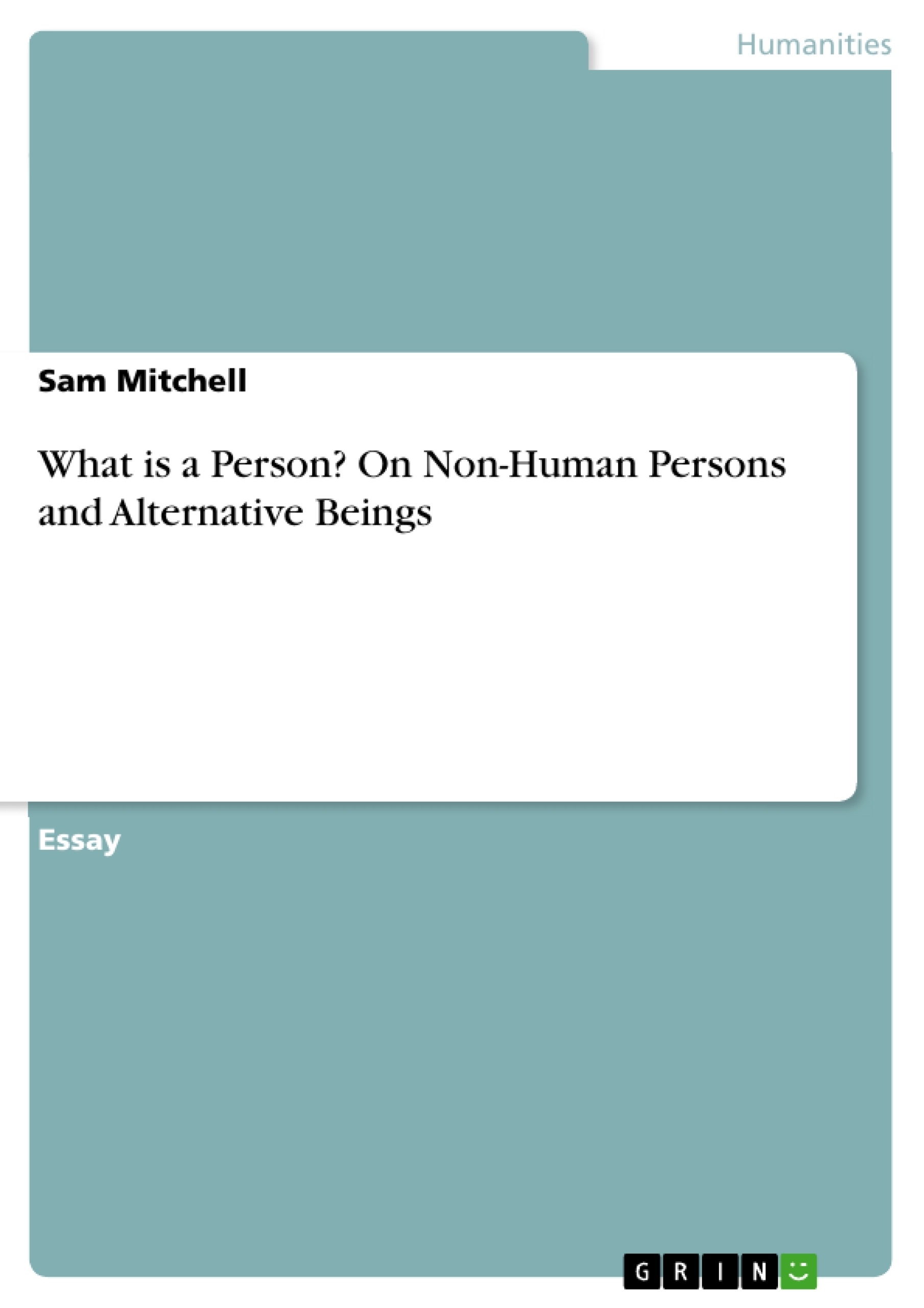It is a fundamental flaw of humanity to consider all of mankind equal and above every other species known to us. It is a flaw that we do not even recognise as a flaw. We go about our day-to-day business without a second thought about whether or not the man across the street is less or more of a person than ourselves. Nevertheless, this flaw exists. It is unfounded and irrational and yet influences almost all our judgments and decisions. Personhood is not a right of mankind. In fact personhood is not a right of any creature. In this essay I explore how we can decide how to award personhood and to whom.
Table of Contents
- On Non-Human Persons or Alternative Beings
- What Personhood is Not
- Communication and Self-Awareness
- Reason and Awareness of Existence
- Recognition and Affinity with Other Persons
- Application of the Conditions
- Potential and Non-Persons
- Overcoming Speciesism
Objectives and Key Themes
This essay aims to re-evaluate the concept of "personhood" by challenging the anthropocentric view that assigns personhood solely to humans. It argues that personhood should be determined not by genetic characteristics or physical appearances, but rather by the qualities of the mind.
- Redefining personhood based on mental capabilities
- Challenging speciesism and the inherent inequality between humans and other beings
- Exploring the role of self-awareness, reason, and recognition in determining personhood
- Examining the implications of applying these criteria to various beings, including young children, animals, and individuals with mental disabilities
- Advocating for the extension of personhood to non-human beings who demonstrate the necessary mental attributes.
Chapter Summaries
The essay begins by debunking the notion that personhood is solely based on being human. It argues that physical characteristics are irrelevant and proposes that the mind should be the deciding factor. The author further explains that personhood cannot be determined solely by communication, but rather by self-awareness, a conscious understanding of one's surroundings and actions.
The essay then introduces the concept of reason as a key element of personhood, allowing individuals to make their own decisions and take responsibility for their actions. This includes an understanding of one's place in the world and the ability to make choices that benefit oneself and others.
The final condition for personhood is recognition, the ability to understand and interact with other beings as persons. This requires an awareness of others' existence and a capacity for emotional connection. The author argues that without this recognition, one cannot truly understand the world or the interconnectedness of all beings.
Keywords
The essay focuses on key concepts such as personhood, self-awareness, reason, recognition, speciesism, non-human persons, alternative beings, and the ethical implications of defining personhood. It explores the potential for extending personhood to animals, particularly intelligent primates and dolphins, and examines the complexities of assigning personhood to individuals with mental disabilities.
Frequently Asked Questions
What is the main argument regarding personhood?
The essay argues that personhood should be awarded based on mental attributes like self-awareness and reason, rather than just being human (speciesism).
Can non-human beings be considered persons?
Yes, the author explores the potential for extending personhood to intelligent non-human beings like dolphins or primates if they meet certain mental criteria.
What role does self-awareness play in personhood?
Self-awareness is seen as a conscious understanding of one's own existence and actions, which is a key requirement for being considered a person.
What is speciesism?
Speciesism is the irrational belief that humans are inherently superior to all other species, a flaw the essay seeks to challenge.
How does the essay address individuals with mental disabilities?
It examines the ethical complexities of applying personhood criteria to young children or individuals with mental disabilities who might lack certain mental capabilities.
- Arbeit zitieren
- Sam Mitchell (Autor:in), 2014, What is a Person? On Non-Human Persons and Alternative Beings, München, GRIN Verlag, https://www.grin.com/document/283724



